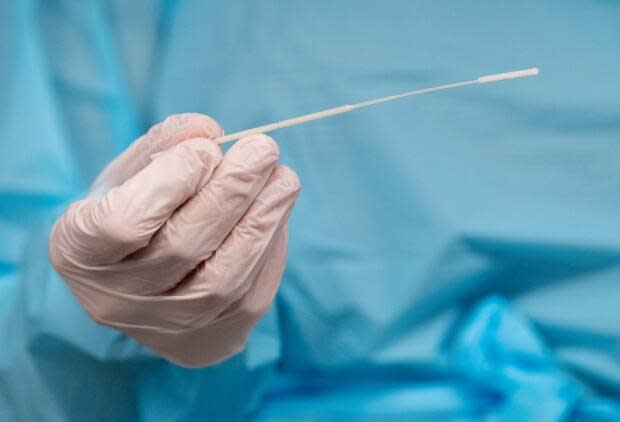3,000 Albertans with COVID will have to trace their own contacts due to backlog

Thousands of Albertans caught in a COVID-19 contact tracing backlog will no longer have their cases investigated.
The province's contact tracing system has grown increasingly overwhelmed as Alberta's case counts spike.
Starting Tuesday, Alberta Health Services (AHS) is temporarily giving up on investigating contacts for people who received their positive test result more than 10 days ago.
There are currently 11,500 people on the waitlist and about 3,000 of them will not be investigated.
"This is not good, this is not optimal, but this is, I think, choosing the lesser of two evils," said University of Calgary infectious disease expert Dr. Craig Jenne.
He says focusing on the most recent cases is the best thing to do given the circumstances.
"We will have a significant absence of data from those cases, but instead of having that problem continue to move forward into the future I think this is a matter of accepting some loss of data, some loss of understanding of transmission," he said.
The temporary measure comes less than three weeks after AHS was forced to limit contact tracing to Albertans connected to high priority settings such as hospitals or schools.
Currently, roughly 85 per cent of active cases in the province have no identified source.
With such a large gap in data, Jenne says broader restrictions will likely be necessary to rein in surging numbers since health officials don't really know where transmission is occurring.
Commenting Tuesday on the situation in Alberta, Dr. Isaac Bogoch, an infectious disease specialist at the University of Toronto, said the inability to complete contact tracing is like fighting blind.
"When you don't have the data, you have no clue what direction you are headed and how to pivot or point, and where to point your public health measures," he said.
"It's very, very challenging. You need good surveillance data, good contact tracing, good diagnostic tests to really help inform and steer the public health response."

